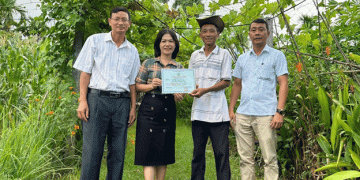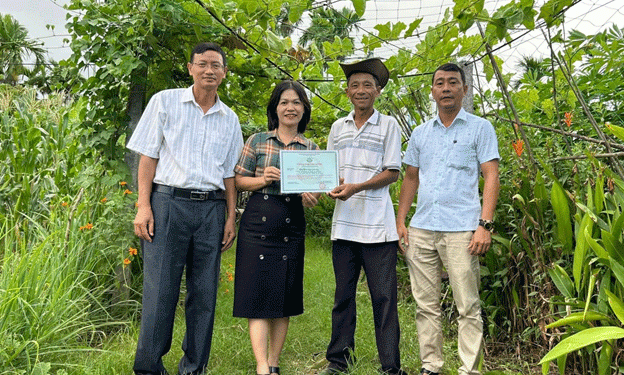In the northern mountainous province of Sơn La, Vietnam, smallholder farmers are redefining what it means to grow vegetables. The transformation is powered by a collaborative project between the Japan International Cooperation Agency (JICA) and the National Agricultural Extension Centre, aimed at enhancing safe crop value chains in northern Vietnam.
One of the project’s standout participants is Nông Xanh Cooperative, located in Vân Sơn Ward, Mộc Châu Town. Since joining the project in 2022, Nông Xanh has increased its vegetable production capacity, boosted income for local farmers, and established itself as a supplier of clean, high-quality produce for supermarkets and foodservice sectors across the country.
Technology Meets Tradition: A Farming Model for the Future
With guidance from Japanese experts, the cooperative introduced market-survey-based planning, GAP (Good Agricultural Practices) training, and advanced techniques like mulching film—a dual-colored plastic layer that protects soil, suppresses weeds, retains moisture, deters pests, and reduces fertilizer loss.
The silver side of the mulch faces up to reflect sunlight and repel insects, while the black side faces down to block light and inhibit weed growth. Farmers have also eliminated the use of visible pesticide packaging and agricultural waste in their fields, further enhancing food safety and environmental stewardship.
Measurable Growth and Market Success
According to Director Lưu Tùng Định, Nông Xanh currently manages 50 hectares of production and partners with over 40 farming households. Their primary crops include cucumbers, green squash, and pumpkin, all grown to meet the stringent standards of modern retail outlets.
The impact of the project is clear:
- 2022 revenue: over VND 3 billion (~USD 115,700)
- 2023 revenue: nearly VND 6 billion (~USD 231,400)
- 2024 revenue: over VND 14 billion (~USD 540,000)
The cooperative now supplies clean vegetables to supermarkets, clean food stores, processing companies, wholesale markets, and restaurants in Hanoi, Hai Phong, Quang Ninh, Nghe An, and Ha Tinh.
Future Vision: Branding and Expansion
Looking ahead, Nông Xanh aims to expand its total production area to over 100 hectares, while investing in custom packaging, brand identity, and new distribution networks. Plans are also underway to construct two preliminary processing warehouses in Mộc Châu and Vân Hồ to support the scaling of operations.
JICA project coordinator Kayano Naoki emphasizes that the project’s most lasting impact is changing farmers’ mindsets. Instead of the traditional “plant now, sell later” model, farmers are increasingly adopting a “plant to sell” strategy based on market data and planned production cycles.
This transformation is being replicated across seven provinces—including Hanoi, Hung Yen, Ha Nam, Nam Dinh, Bac Ninh, Hai Duong, and Sơn La—with many cooperatives now self-replicating the model and integrating it into provincial extension programs.
A Strategic Shift Toward Sustainability
The project also trains agricultural officers and supports cooperatives in market assessment, sales strategy, and production planning, all while reinforcing technical capacity. As Công Xuân Ngọc, Director of Sơn La’s Agricultural Extension Center, notes, “It’s not just about higher yields—it’s about building long-term, market-ready farming systems.”
Sơn La’s agricultural cooperatives are proving that smallholder farmers can thrive in competitive markets by embracing innovation, safety, and sustainability. With continued support from partners like JICA and a clear focus on building end-to-end value chains, these mountain farmers are sowing the seeds of a more profitable and resilient rural economy—one harvest at a time.































